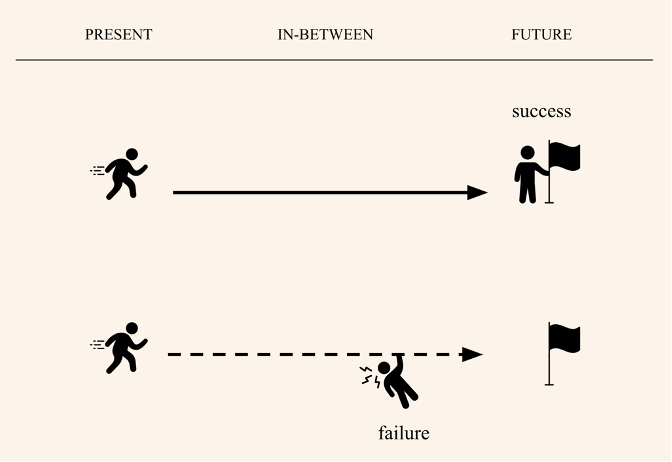Great Expectations.
"Keep Your Expectations Low, But Your Standards High" — two-time Olympic gold medalist and four-time World Cup champion skier, Mikaela Shiffrin
There have never been more women to admire — my Founder Friday column on IG has become my beloved way to highlight so many — and along with inspiration from these go-getters, expectations for ourselves grow.
While the well-researched “Pygmalion effect” — the psychological phenomenon where higher expectations from others (brava to the rise in #womenempoweringwomen) lead to improved performance — can make us all feel invincible, this self-fulfilling prophecy can have the inverse effect on our achievements when we don’t believe in ourselves. Or have convinced ourselves we are too old to achieve grand goals1. In this downward spiral, we not only won’t succeed, but out of reach high expectations can damage our self-esteem, causing anxiety, depression and burnout.
So, do we stop trying?
No chance.
SHOW PERFECTIONISM THE DOOR
Psychology Today said it best: “The most important conversation you are having is the one in your head.”
While meditation is recommended to help show perfectionism the door, I am a recovering perfectionist without a daily TM practice. I find fitness and wellness feels meditative — thank you Crossfit and Higher Dose sauna blankets. Journaling expert and AllSwell founder
swears by expressing yourself on paper. Journaling should not be reserved for “wellness-minded folks” she has said, it “might be more important for busy people.” Whatever works to help clear your mind — and your unwillingness to settle for anything less than the best — is the thing to do. Consider finding your desired tack your first anti-perfectionist undertaking.I am open to change, but know from psychotherapist Katherine Morgan Schafler, author of The Perfectionist's Guide to Losing Control: A Path to Peace and Power that this seemingly exacting character trait is not all defect. “Healthy perfectionists understand that ideals are meant to inspire; they’re not meant to be achieved. And unhealthy perfectionists sometimes lose sight of that.”
Similarly, the idea of letting go — of the highest expectations in this case — is more than the subject of Brene Brown’s bestseller, it can become a way of life that will get us closer to achieving our dreams. As legendary feminist Gloria Steinem said, “Perfectionism is internalized oppression.” Schafler prescribes pleasure as the antidote. No expectations readjustment needed here; I can handle finding more joy.
REFRAMING GOALS
In approaching goals — whether they are career, relationship or wellness related — the process often feels linear (see visual below) and leads to disillusionment. If we miss the mark, we are discouraged; If we meet with success, the happiness is short-lived. Harvard-trained psychologist Dr. Tal Ben-Shahar calls this the arrival fallacy.
Atomic Habits genius James Clear concurs: “Achieving a goal only changes your life for the moment. That’s the counterintuitive thing about improvement.”
Credit: Ness Labs
Dr. Tal Ben-Shahar repositions goals as growth loops (see visual below) noting, “we don’t go in circles, we grow in circles.” With this growth mindset, the large gap — between where we begin (present) and our high expectations (future)— vanishes and despite uncertainty about the outcome, we can take comfort knowing we are still making progress. We still have growth. “We can embrace the idea that achievement is simply the continuation of the learning cycle itself.”
Credit: Ness Labs
Ralph Waldo Emerson said it best: “It's not the destination, it's the journey.” In this era of too high expectations, this is a great mantra to remember.
BURNOUT
High expectations lead to burnout, which a whopping 89% of Americans suffered from in 2023. One man changing the tune of this rampant unrest is legendary music producer Rick Rubin. His book The Creative Act: A Way of Being is not dedicated to “creatives” — he believes to be human is to be creative — and strives to guide us to success with practical tools and insight surrounding an abundant mindset, intention and momentum.
While putting the finishing touches on today’s newsletter I received the
substack “On Slow Movement.” The iconic poet, and best-selling author, speaks in praise of slow movements that are “intentional, powerful and intelligently considered” to cure ourselves of the rat race and self-imposed productivity that is “a sickness of the ego.”I couldn’t agree more.
While it may feel counterintuitive, there is room for motivation, enterprise, entrepreneurial endeavors and more but we would all be much happier — and seemingly more successful — if we took expectations down a notch. For those of us in our second (or third) acts, this push for exceeding can be as futile — and emotionally damaging — as the idea of “anti-aging.” We have the wisdom to know we don’t have anything to prove. We don’t need to fight ourselves to get ahead…or defy gravity.






Growth loops are a totally new concept to me. There’s the old idea that a person learns the same lessons over and over in life which I’ve found to be accurate and thus, frustrating. But if growth is perceived as concentric loops and not a straight line with a finish ribbon…? That’s a liberating perspective shift. Thanks for sharing this!
I love this so much!